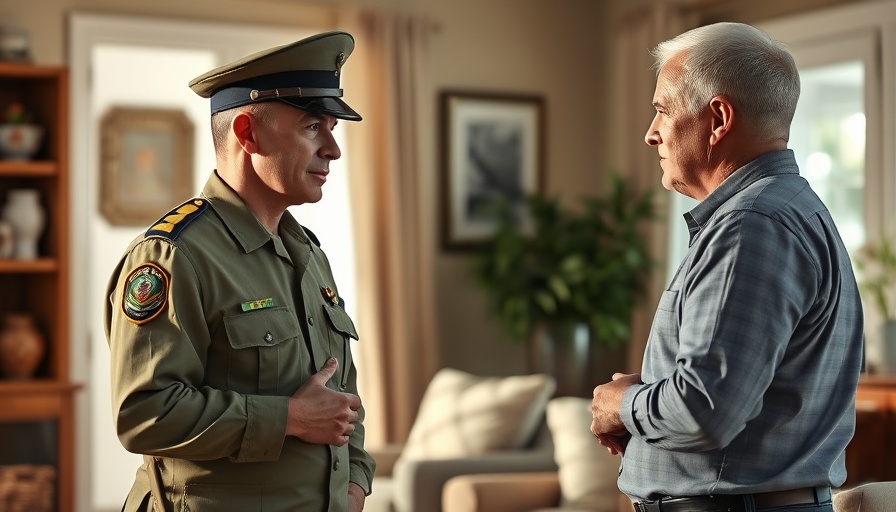
Understanding Sleep Apnea: A Hidden Threat in the Military
Sleep apnea is not just a personal health issue; it is a growing concern within the ranks of the U.S. military. A recent study from the University of Maryland School of Medicine highlights a significant prevalence of obstructive sleep apnea among active-duty personnel, revealing that it can endanger their health and the effectiveness of military operations. With more than 10% of Americans suffering from this condition, military members facing the rigors of frontline service are uniquely vulnerable.
Health Risks Associated with Sleep Apnea
The study’s findings are particularly alarming. Those military members diagnosed with sleep apnea were found to be over four times more likely to develop post-traumatic stress disorder (PTSD) and three times more likely to experience traumatic brain injuries compared to their peers without sleep apnea. This correlation not only underscores the health risks of sleep apnea but also its potential to exacerbate the mental and physical toll on service members who already face significant stress and trauma.
The Burden on Military Resources
This condition is not just a medical concern; it has far-reaching implications for military readiness. The study is the largest yet, utilizing data from nearly 60,000 service members to illustrate the burden of sleep apnea on healthcare resources within the military health system. The upward trend in diagnoses—rising over ten-fold from 2005 to 2019—indicates an urgent need for increased awareness and intervention.
Improving Awareness and Intervention
“This study underscores the increasing importance of early intervention in sleep apnea for military personnel,” stated Dr. Emerson Wickwire, the lead author of the research. The findings aim to inform healthcare providers within the military to enhance screening processes, triage systems, and treatment options for soldiers at risk.
Strategies for Better Sleep Health in the Military
With only a third of active-duty service members getting the recommended seven or more hours of sleep per night, the urgent need for improving sleep health is clear. Military life often disrupts regular sleep patterns due to demanding schedules, making it crucial for leaders to promote awareness about sleep hygiene and healthier recovery practices. Implementing programs focused on sleep health could lead to long-term improvements in mental and physical well-being, ultimately protecting the soldiers’ health and enhancing operational effectiveness.
Resources for Managing Sleep Apnea
For those affected by sleep apnea, several strategies can help manage this condition effectively. These may include educational resources about sleep hygiene, cognitive-behavioral therapy for insomnia, and assessing the need for Continuous Positive Airway Pressure (CPAP) therapy. Utilizing community support and professional resources ensures that these service members can achieve better sleep and recovery.
What This Means for the Future
As the military continues to navigate the challenges of modern warfare, prioritizing the health of service personnel is paramount. The insights from this study provide a roadmap for potential interventions that could significantly affect individuals and unit performance. Fostering a culture that values sleep and recovery is essential for maintaining the readiness and resilience of our armed forces.
In conclusion, whether you’re active-duty military or someone grappling with sleep troubles, understanding and addressing sleep apnea can enhance your quality of life and overall well-being. By taking proactive steps toward healthier sleeping habits and seeking professional help when needed, both military personnel and civilians can enjoy the benefits of improved sleep.
 Add Row
Add Row  Add
Add 




Write A Comment